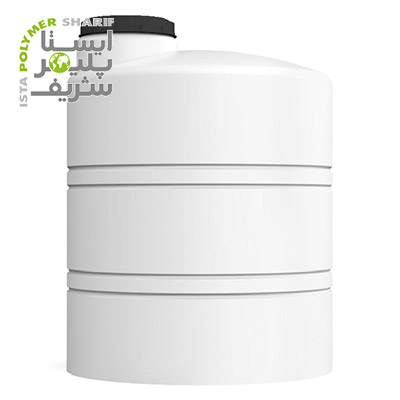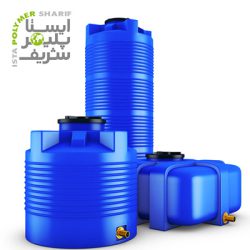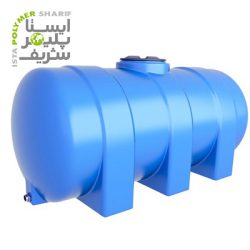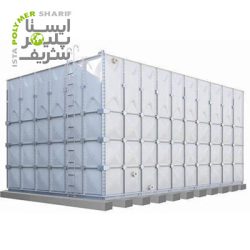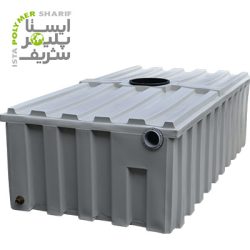There are various types of reservoirs, including polyethylene reservoirs, buried polyethylene reservoirs, fiberglass reservoirs, foam tanks, GRP tanks, and polypropylene reservoirs. In this article, we aim to examine the quality and efficiency of polypropylene reservoirs. If you intend to purchase this product, we recommend staying with us.
What is a Polypropylene Reservoir?
A polypropylene reservoir is a widely used tank that the professional team at ABtank specializes in manufacturing, especially for high volumes and various fluids. Polypropylene is a thermoplastic obtained from the polymerization of propylene gas and is recyclable. This polymer has three spatial structures: atactic, syndiotactic, and isotactic, which are differentiated by side chains, resulting in different physical and chemical properties.
Polypropylene pipes have extensive applications. This type of polymer can be used in the production of pipes, car floor mats, drinking straws, toys, food packaging, films, fibers, injection molding, blow molding, protective coatings, septic tank production, composite manholes, and storage tank production.
Advantages of Polypropylene Reservoirs
- Excellent corrosion resistance
- High tensile strength
- Low density
- Excellent chemical resistance
- Low production cost
- No water infiltration or leakage of materials from the reservoirs
Applications of Polypropylene Reservoirs
Polypropylene reservoirs are used for storing chemicals, including acids and some bases. These reservoirs are superior to GRP tanks or tanks with rubber linings for chemical storage. Depending on the need and application, these reservoirs can have different shapes and various fittings. For chemical storage, polypropylene reservoirs should be seamless.
One of the most important features of these reservoirs is their ability to prevent water entry and wastewater leakage. Multiple seals can be used in the tanks to ensure no liquid ingress or egress. Polypropylene reservoirs are the best option for storing acids and bases such as sulfuric acid, hydrochloric acid, hydrofluoric acid, nitric acid, sodium hypochlorite, ammonia solution, ferric sulfate, chloride, and aluminum sulfate.
Features of Good Polypropylene Reservoirs
- High flexibility
- Good body strength
- High compressive resistance
- Excellent chemical resistance
Comparison of Polypropylene and Polyethylene Reservoirs
The cost of procuring polypropylene is higher than polyethylene. Due to side chains, spatial hindrance, and restricted chain rotation, the strength increases while flexibility decreases. Polypropylene has a higher melting point than polyethylene and exhibits crystallinity. Thus, if higher resistance and temperature are required, a polypropylene reservoir should be used. As mentioned, one of the applications of polypropylene is in tank construction.
Price of Polypropylene Reservoirs in Iran
Regarding the price of polypropylene reservoirs, it is important to know that the higher the purity of the raw materials, the higher the final cost of the reservoir. It should be noted that direct sunlight increases the corrosiveness of acidic materials. To prevent this issue, reservoirs are painted with anti-reflective colors. The storage environment temperature of the polypropylene reservoir is also crucial due to acidic and alkaline liquids and should be kept in moderate and cool conditions. However, cold environments can cause the liquid to freeze, which is undesirable.
ABtank Company manufactures polypropylene reservoirs in various types and sizes. For more information, guidance, and consultation on selecting the best water tank according to your needs and application, you can consult with the experts at ABtank.

